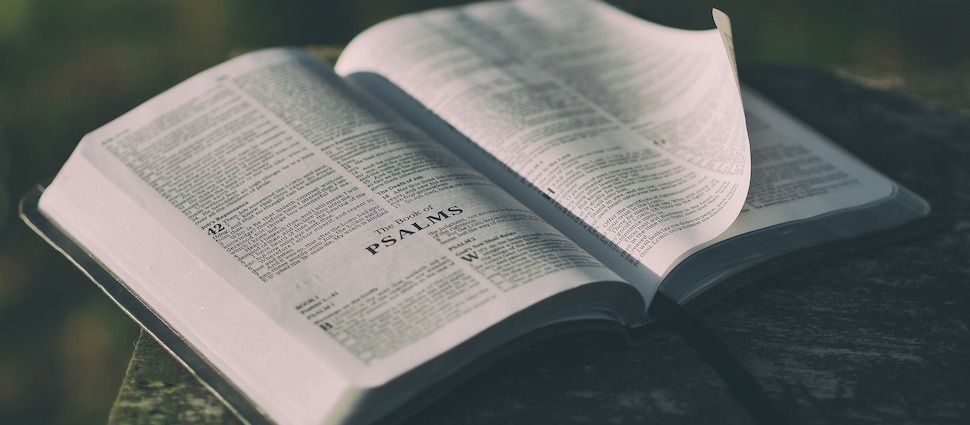Theodulf of Orleans – Poet and Theologian in the Carolingian Court

Theodulf of Orleans – Poet and Theologian in the Carolingian Court
Theodulf belonged to the group of bright minds Charlemagne gathered at his court in order to boost education in his empire. Born in a Visigothic family, probably in Spain, around the year 750, he is named after the French city where he became bishop, Orleans.
At Charlemagne’s court, Theodulf distinguished himself as a scholar, theologian, pastor, and poet, while exhibiting valuable organizational skills.
Theologian
As theologian, Theodulf is mostly remembered for his firm stand against the worship of images. He is considered the main author of the Opus Caroli Regis contra synodum (Work by King Charles against the synod), used by Charlemagne to oppose the decisions on icons taken by the 787 Council of Nicaea (also known as II Nicaea).
In reality, Charlemagne was not completely against the presence of images in churches. What he strongly opposed as unscriptural and idolatrous was the worship of images which, due to an error in translation, he thought II Nicaea was promoting.
This was a time when a translator’s mistake may have worked for the best, because it spurred Theodulf to raise a body of clear objections to images that was later resumed by other Reformers. (Unlike later Reformers, Theodulf never went as far as saying that images should be removed from churches. He recognized their artistic and even didactical value, but believed Scriptures should have prominence).
From the beginning of time, Theodulf said, God communicated to his people through words, not images. The communion with God the Byzantines sought to achieve through images should be found in Scriptures and in the eucharist.
Since the Byzantines were taking some Old Testament objects (such as the brazen serpent) as proof that God allows images, Theodulf explained that these were just types of Christ. Now that Christ has come, the types are obsolete. By asking people to worship images, he said, the patriarch of Constantinople compelled them “to lapse from the spiritual to the carnal, from the invisible to the visible, from the truth to an image, from the body to the shadow, from the living spirit to the dead letter, from the spirit of adoption to a spirit of fear.”[1]
This is just one of the many objections Theodulf listed in this long document, which includes quotations of several church fathers, especially Augustine of Hippo. The finished work was sent for revision to other scholars. In the end, a copy was sent to Pope Hadrian and another to Byzantium. Charlemagne was highly pleased, as it appears from annotations he made on his copy.
Initially, Hadrian stood of the side of Byzantium, repeatedly referring to tradition, even when the Franks opposed some of the statements in Nicaea II as foreign to the Bible. In the end, however, he stood with the Franks for political reasons.
Besides this, Theodulf wrote, at Charlemagne's request, a treatise on the Holy Spirit, largely in reply to the adoptionist heresy promoted by Bishop Felix of Urgel. He also underwent a revision of the Vulgate Bible, weeding out some of its errors. Some copies of “Theodulf’s Bible” still exist today, written in golden script on purple pages.
As administrator, Theodulf promoted a system of free elementary schools for all (teaching reading and possibly writing). The instruction was to be given by the clergy as part of their service to others. This initiative, favored by Charlemagne, went along with Theodulf’s insistence on the importance of the written Word of God.
Poet
Theodulf’s poetic works were highly valued in his time. He wrote on a variety of subjects, from theological to amusing, from the customary praises of rulers to elegies at the death of influential men. Seventy of his poems still survive, although they are largely overlooked. Some are purely entertaining, and others include a hidden moral that is left to the reader to discover.
One of his wittiest poems tells the story of a man who, robbed of his horse, threatened to do what his father had done in Rome. No one knew what his father had done, but it sounded intimidating. Fearing the worst, the thieves returned the horse. The poem with its humorous ending can be found on this webpage: https://www.heroicage.org/issues/13/sypeck.php
Some of Theodulf’s poems were openly didactical, such as one warning judges to seek true justice and refuse bribes. In those days, bishops were often called to judge pressing matters, and Theodulf had been offered his share of gifts, from a silver flask to an Arabian tapestry. His admonitions to the judges included the need for prayer before a trial, moderation in food and drink the night before, and practical considerations (for example, those who had to travel far should be judged first).
This poem was composed in the context of Charlemagne’s reform of the judicial system. In 798, Theodulf was sent with Leinrad, bishop of Lyons, to inspect the judicial courts in the Rhone Valley and Septimania (ancient province in the south of France).
Today, only one of Theodulf’s poems is still well-known, even though the author is seldom remembered. Translated into English by the 19th-century Anglican clergyman John Mason Neale, “All Glory, Laud, and Honor” has become a favorite hymn for Palm Sunday. The circumstances that led to the writing of this hymn are not clear. Many believe Theodulf wrote it after he was deposed, in 818, as a suspect in a plot against the new emperor Louis the Pious. The popular story that Louis freed Theodulf after hearing him sing this hymn in prison, as charming as it is, is not backed by solid evidence.
After his deposition, Theodulf was confined to the monastery of Saint-Aubin at Angers, about 200 miles south-west of Paris, where he wrote letters and poems protesting his innocence. He died there on September 28, 821.
[1] Thomas F. X. Noble, Images, Iconoclasm, and the Carolingians, University of Pennsylvania Press, 2009, p. 210





